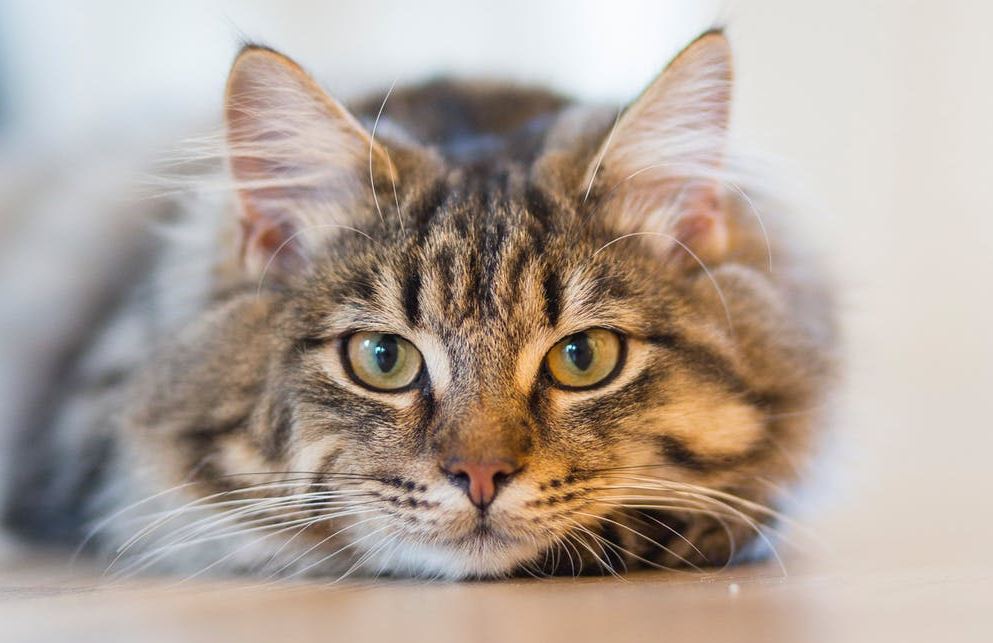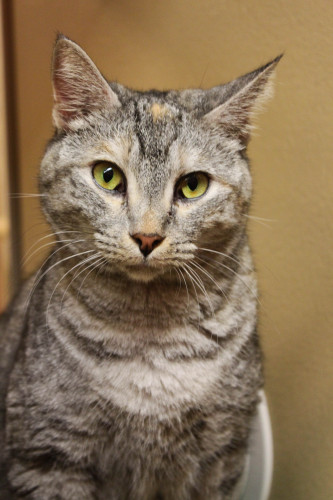Depression in Cats: the Signs to Look out For

Much like human beings, cats can also suffer from a range of mental problems and depression is just the tip of the iceberg. There are many different factors that could lead to your cat feeling depressed, and it can be a combination of environmental or social changes that ultimately trigger it. It could be something as small as your cat not getting the same food they are used to, or it could be more drastic such as moving to a different home. Depression can be difficult to detect in cats because they all react differently to those feelings. Sometimes the changes in their mood can be subtle, or perhaps the owners don’t notice the signs quickly enough and it develops into anger or discontent in your cat, making it hard to reverse or treat.
If you want to prevent your cat from feeling sad and depressed, then here are a couple of signs to look out for. This isn’t a comprehensive list, and although some tips are given to experiment and try to please your cat, it’s always recommended to visit your veterinarian to get a professional opinion. Don’t force your cat into submission, don’t feed them strange medicine or herbal remedies that are advertised on the internet, and take your cat to a professional if the signs are getting out of hand.
Look out for behavioural changes
The first thing you should look out for is behavioural changes. For instance, if you notice that your cat is eating a little less or acting strange, then it might be early signs of depression. If your cat suddenly stops going outside, then they’re not getting enough exercise and it might be due to depression. Make sure you have indoor toys and climbing posts for your cat to play with. If they’re still using them, then it might just be because your cat doesn’t want to go outside. If they refuse to exercise at all, then it could be due to their emotional state.
Differentiating depression and other conditions
It’s worth mentioning that behavioural changes in cats can be due to many different conditions. It could be a sign that your cat is bored, it could mean that your cat is scared or even nervous. If you find that your cat is less aware of their surroundings, then it might just be a sign that your cat is getting old. With so many different possibilities, it’s important that you take your cat to a veterinarian if you’re unsure of the causes or reasons for their behavioural changes. As soon as your cat starts to act a little strange, it’s a sure sign that something is going on and it needs to be addressed.
Keep a diary
To assist with the veterinarian’s job, make sure you keep a diary of all of your cat’s changes. Write down the dates and times of when things happen, and keep a log of their activity. You may also want to write down any household changes that have also occurred around the same time that your cat’s mood changed. Although cats may not perceive things the same way as humans, they do notice the absence of a family member, changes in the food they’re given, or when the neighbour’s cat stops coming out to play.
Monitor eating habits
Cats that are depressed may eat excessive amounts and groan at you for more food. However, they may also refuse to eat and a loss of appetite is a common sign of depression in most animals and people. The first thing to check is the food you’re feeding your cat. Look at some of the best cat food reviews and consider purchasing a variety of different brands to see how your cat reacts to each one. It might just be a case that your cat isn’t satisfied with the food they’re being given. If your cat seems to be overeating and putting on weight as a result, then consider reducing the amount of food they’re allowed and consulting your veterinarian about your pet’s nutrition. Every cat is different and requires a different amount of food, so don’t skimp on the details.
Watch the litter box
Problems with your cat’s litter box may indicate stress or depression. If you find that your cat has been urinating or leaving faeces in places that aren’t the litter box, then it could be an indication of depression. However, it’s worth checking if they’re unhappy with the litterbox. It could be too small, the litter could be dirty and it might need replacing, or they might not enjoy the location of the litter box. However, if your cat was perfectly fine with the litter box in the past, then it could be a sign of depression and not a dislike for the litter box arrangements.
It’s also important to remember that cats sometimes urinate to mark their territory. However, urine marking typically happens on vertical surfaces such as walls and not the floor, and it’s more common in male cats. If this is happening, then your cat might feel like their territory is threatened. This can also happen if your cat is moved to a new location such as a different home. If you have multiple cats in your home or if the neighbours have cats that frequently show up around your home, then urine marking might be a sign that your cat is feeling anxious about a territory dispute. In these cases, it might be worth sorting out these problems before it leads to more troubling issues.
Summary
In short, the signs of depression in your cat are somewhat similar to humans. Look out for any behavioural changes and keep a diary of your cat’s habits. Keep it updated as often as possible and remember to note any changes that you have personally made to your home so you can identify if your cat’s depression is a result of something that you have personally changed. When in doubt, always seek advice from a professional veterinarian.
Healthy Cat Treat

Subscribe to Our Love Cats Digest e-zine
"A cat improves the garden wall in sunshine, and the hearth in foul weather." - Judith Merkle Riley
Marketing Strategies by









New! Comments
Have your say about what you just read! Leave me a comment in the box below.